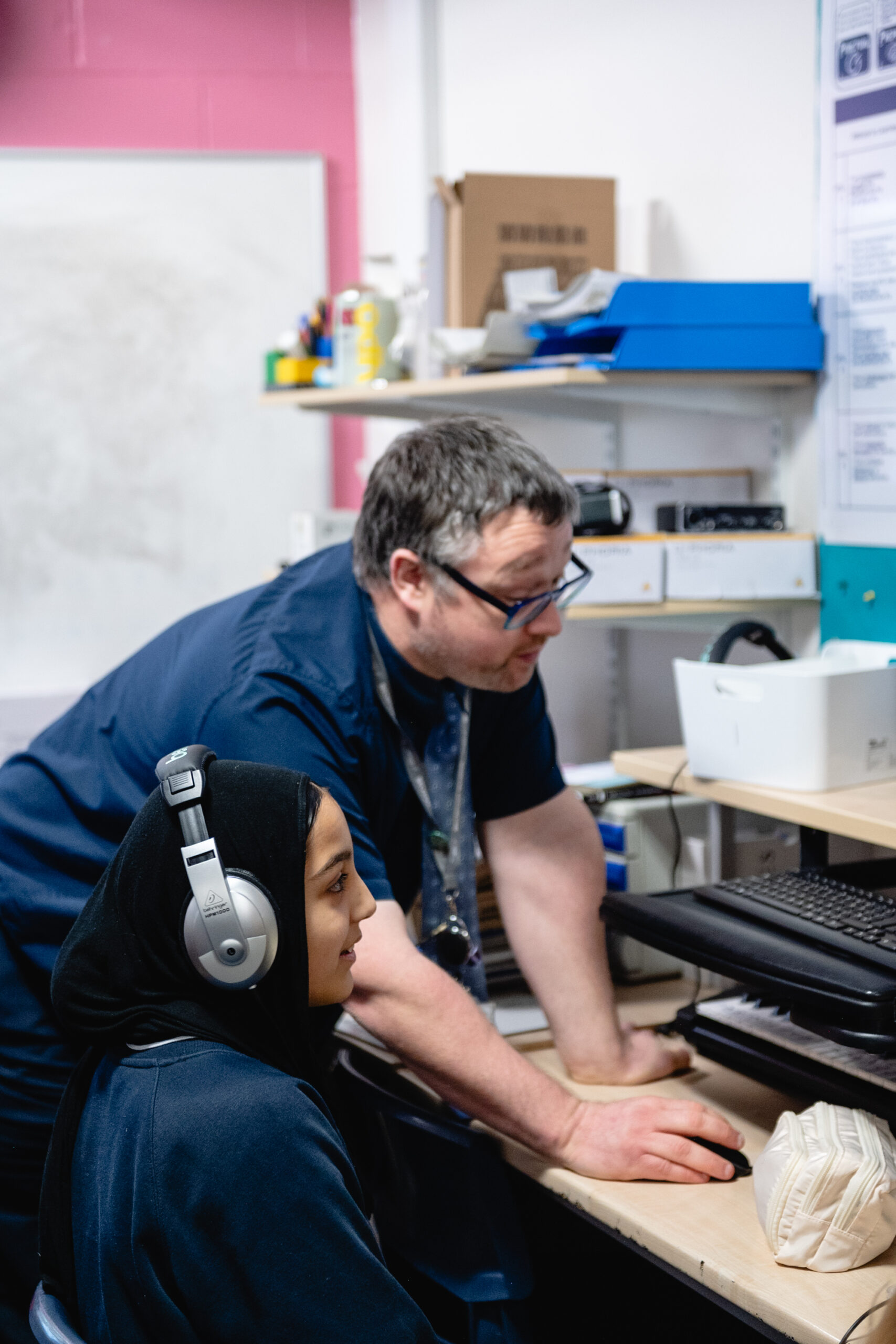Music will ignite a creative spark and develop musicianship through performance, composition and discussion.

Our aim at Beckfoot is to inspire young people to have a life long love of music. We will enable young people to understand and discuss both historical and current approaches to music making, and how music is a product of its time, culture and place in society. We will ignite a love for performing through the study of great composers, their works and performance of various musical styles and develop creativity through the various compositional techniques used in a range of genres.
Music will allow students to express their love of the subject and articulate their opinions as they develop the key skills needed to be a successful musician.
Enrichment
Beckfoot musicians excel at being a part of our wider school community. They develop cultural capital and empathy by taking part in various extra curricular groups that contribute the whole schools wider day-to-day life.
We have a fantastic team of instrumental and vocal staff who offer incredible tuition for our students. Click here to sign up for this incredible opportunity.
Assessment
In years 7, 8 and 9, internal assessments will take place throughout each year to monitor student progress and further inform teaching and learning.
KS4 Specification
Careers
Music creates employment ready young people by developing their confidence, self worth , thinking skills, creativity and empathy/
Music will give them access to a range of qualifications that will allow them to follow their musical passions
Curriculum Overview
| Year | Cycle 1 | Cycle 2 | Cycle 3 |
|---|---|---|---|
| Year 7 | Elements of music: Students will learn the fundamental building blocks of music through DR SMITH (Dynamics, Rhythm, Structure, Melody, Instrumentation, Texture and Harmony) Gamelan: Students will be introduced to world music, focusing on rhythm, pitch and ensemble performance using a simple five-note scale | Chords: Students will learn basic harmony, playing C, F and G major chords and using block, broken and “oom-pah-pah” techniques, as they learn to play a melody for a popular piece of music Riffs: Students will explore repeated musical patterns, playing rhythmically complex riffs and composing their own | Caribbean Music: This unit will focus on syncopation and offbeat rhythms, incorporating melody, chords and baselines, bringing together all the skills they’ve developed over the year. |
| Year 8 | Music and advertising: Students will compose jingles and explore the role of music in branding, understanding underscore and voiceovers Blues: Students will study the 12-bar blues, improvisation, and syncopation while learning about its historical links to slavery | Pop music: Students will explore catchy hooks, baselines, and music technology, arranging their own pop songs Film music: Students will learn about leitmotifs, underscoring, and composing music for film scenes | Latin American Music: Students will perform tango and samba rhythms, developing complex rhythmic and harmonic skills Hip hop: Students will learn about the cultural impact of hip hop music as they write and perform rap lyrics, exploring beat-making and music technology |
| Year 9 | What is music to you? Students will explore their musical identity, discussing different genres and their personal influences History of music: Students will study baroque and classical music as they study harmonic structures, Pachelbel’s Canon, and the development of classical composition techniques | Grunge and Britpop: Students will learn about two of the most influential styles of popular music as they learn to play power chords and explore the social impact of these styles, performing and analysing iconic songs Musicals: Students will examine leitmotifs, strong structures, and perform pieces from famous stage musicals | Disco, EDM and Grime: Students will focus on music production, composing and performing in modern dance music styles World music and fusion: Students will explore cross-genre compositions, fusing different musical elements from around the world |
| Year 10 | Building blocks of music: Students will review key musical concepts, focusing on DR SMITH (Dynamics, Rhythm, Structure, Melody, Instrumentation, Texture and Harmony) as they develop listening and appraising skills and learn how to structure essay responses Forms and devices: Students will explore musical forms from Baroque, Classical and Romantic period, analysing compositional techniques used in these styles | Music for ensemble: Students will study textures and sonority in different ensemble settings including chamber music, jazz and musical theatre Film Music: Students will explore how music enhances storytelling, studying leitmotifs, thematic development, and minimalist techniques, students will also compose film music using software like MixCraft or Sibelius | Popular music: Students will cover pop, rock, bhangra and fusion, analysing how composers combine instrumental and vocal elements with recording techniques |
| Year 11 | Revision recap and composition development: Students will focus on listening and appraising skills, essay writing practice while they begin to develop their first composition and prepare for their first performance Set work – Africa by Toto: Students will analyse this pop song in depth, using DR SMITH to explore its key musical features. They complete listening and essay-style questions to test their understanding | Set work – Badinerie by J.S. Bach: Students will study Baroque music, focusing on melody, ornamentation and harmonic development- this unit includes listening and appraising exercises Composition 2 (set brief): Students complete their second composition based on a brief provided by the exam board, ensuring it meets all required criteria | Performance preparation: Students will refine both solo and ensemble performances, recording final versions for assessment Final revision: Students will review all set works, music theory and listening skills in preparation for their exam |